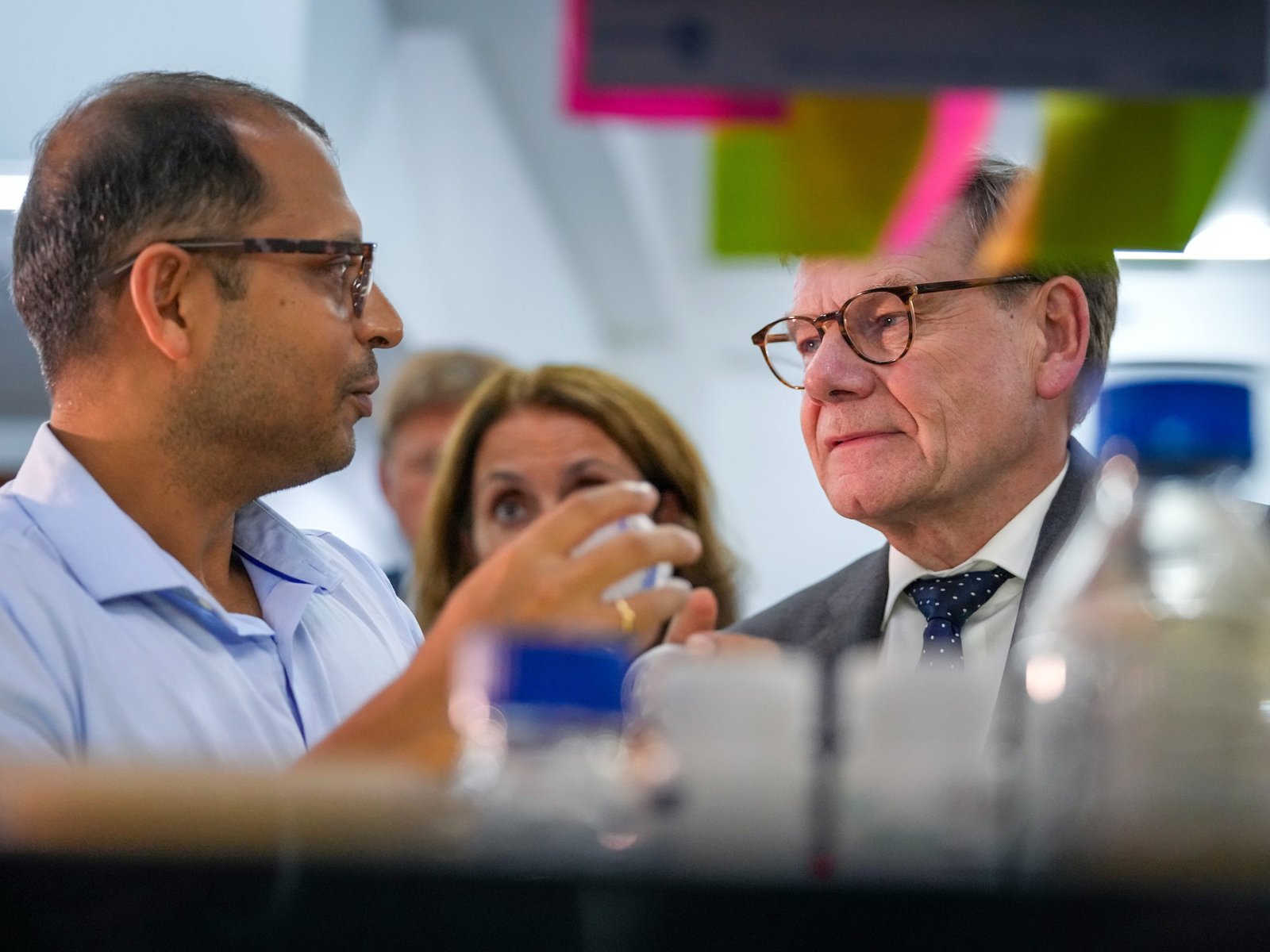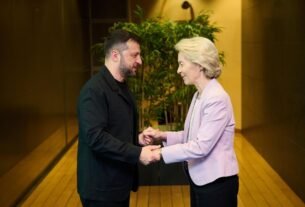German Foreign Minister Johann Wadephul was carrying a suitcase full of flattery as he stepped off the airplane in India on Tuesday for a two-day diplomatic visit.
Before departing Berlin, Wadephul was full of praise for India, not only congratulating the country on its growing economic clout and influence but also lauding what he described as a “similar” perspective on the rules-based international order and democratic values.
That latter bit may be wishful thinking. Just the day before, Indian Prime Minister Narendra Modi declared himself “delighted” to meet Russian President Vladimir Putin – the man who’s busy dismantling that very global order in Ukraine – at a back-slapping summit of Asian autocrats in Shanghai.
But Germany seems happy to look the other way when it comes to India. Wadephul’s trip is part of a German scramble to find alternate markets to cushion the economic blow from US President Donald Trump’s tariff frenzy, which is upending international trade.
“Germany needs global partners, and India is one of the privileged partners we need,” Wadephul told German broadcaster Welt in Bangalore.
Europe’s largest exporter is particularly keen to seal an EU-India trade deal “as fast as possible”, according to Wadephul.
For the trip, he brought along executives from 14 major German companies, ranging from insurance to aerospace. He even found space on the flight for former German field hockey player Moritz Fürste, a two-time Olympic gold medallist and star of the Hockey India League to help grease the wheels.
Brussels shares the sense of urgency around economic ties with India. Back in February, all 27 EU commissioners travelled to the country, where Commission President Ursula von der Leyen promised to wrap up negotiations by year’s end after meeting Modi.
EU trade chief Maroš Šefčovič is rumoured to be planning another visit later this month.
Spicy deals
Berlin has long held ambitions for deeper ties with New Delhi, and signed a “strategic partnership” agreement back in 2000. Former Chancellor Olaf Scholz, who left office earlier this year, had sought to champion links with developing and emerging markets – particularly India and Brazil, two countries that became subject to intense shuttle diplomacy from German ministers.
An impending billion-euro deal to sell six German-made submarines to India’s navy is one potential reward for the efforts. Deepening cooperation on defence could also help pull India away from deep ties to the Russian weapons industry. In Wadephul’s entourage are executives from thyssenkrupp Marine Systems, one of Europe’s leading suppliers of conventional submarines.
While en route to Bangalore, Wadephulacknowledged that India might not always be an easy partner, especially when it comes to Modi’s freewheeling approach to Moscow. India is the world’s second-largest customer for Russian oil, after China, with the proceeds indirectly funding the Russian war in Ukraine.
Trump’s tariffs, however, could push New Delhi closer to Europe. Last week, Trump slapped Indian goods with 50% punitive tariffs, citing its sanction-circumventing oil purchases. Economists warn the move could shave as much as 0.8% off India’s GDP.
Modi’s cozy chats with Putin can also be read as a defiant signal to Washington.
Diplomatic yoga
India is also very much seeking to deepen the bilateral relationship “in this multipolar world”, as Indian Foreign Minister Subrahmanyam Jaishankar told Euractiv in an interview during a visit to Brussels in June.
India, a leading exporter of services which is also looking to grow its manufacturing sector, has much to gain from deeper ties to German industrial heavyweights.
“Many German companies are already active in India, others want to become active,” Wadephul noted on Tuesday after touring “innovation hubs” run by two German blue-chip firms – carmaker Mercedes-Benz and software giant SAP – in Bangalore, the centre of India’s tech industry.
Meanwhile, Germany is an attractive destination for India’s many aspiring emigrants, as the German labour market has been plagued by staffing shortages, especially for skilled specialists in areas like IT.
It’s likely Wadephul raises sharp disagreements over Russia as he meets Jaishankar later on Wednesday. But Wadephul will be at pains to avoid any kind of open conflict that could damage the budding – and mutually beneficial – relationship.
“I want to ensure that the economic conditions are right,” he said.
(bts)





